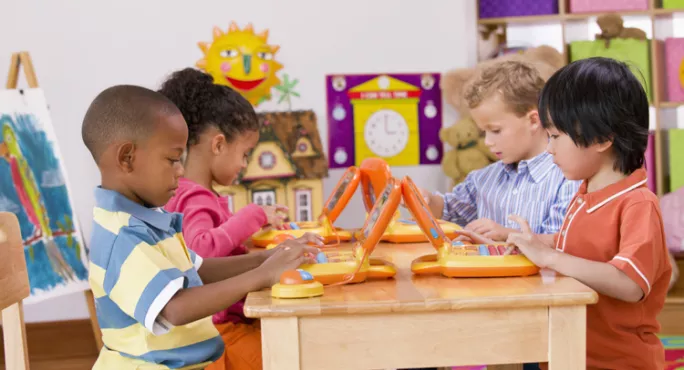The lower status of early years teachers is discouraging people from applying for the job, despite a need for graduates in the sector, MPs heard today.
“We are concerned there has been a loss of momentum around raising the quality of the early education,” Steven McIntosh, head of government relations for the charity Save the Children, told a joint hearing of the Commons education and work and pensions committees.
“We heard from the public accounts committee that the government is only meeting 41 per cent of its target in early years’ teacher recruitment,” he added.
The charity wants to see the government emphasise early years teacher recruitment and retention.
‘Disparity in status’
“The government really is far off achieving its early years recruitment targets, so there needs to be a real focus on that,” Mr McIntosh said. “And there are questions as to the status of early years teachers. They don’t have the same status as primary teachers, for example, so when people are looking to apply to education-related roles that disparity is likely to discourage people.”
The committees’ joint inquiry is examining what could be done to improve children’s life chances.
Qualified early years teacher status was introduced in 2013 but has a separate set of standards from those for mainstream teachers - meaning that early years teachers do not have QTS and are not on the same pay scale as teachers in schools.
During the consultation on the new standards, the NAHT headteachers’ union said that it did not think there should be a separate teachers’ standard for early years teachers, and there should be the same expectations as for teachers in other school phases.
Earlier this year, the National Audit Office, in its report Entitlement to Free Early Education and Childcare, said that the percentage of private, voluntary and independent settings and nursery schools with at least one teacher with qualified teacher status, early years teacher status or early years professional status has increased steadily, from 38 per cent in 2011 to 49 per cent in 2015. It added: “Encouragingly, we assess that children from more deprived areas are just as likely to have contact with staff with relevant qualifications as more affluent children.”
A Department for Education spokesperson said: “The latest figures show more young children than ever are achieving the expected level of development in the early years, with more than 80 per cent of children reaching the expected communication and language skills by age five.
“Getting an excellent education is vital for a child’s life chances, and we are making a significant investment in the early years sector. We want to continue to attract quality staff into the early years, including more trained graduates - that’s why we are providing funding for course fees and bursaries for eligible trainees, and supporting employers to help with staff training.
“As a result, numbers of qualified staff have risen, the number of graduates in the workforce continues to rise, and a record number of providers are rated good or outstanding.”
Want to keep up with the latest education news and opinion? Follow TES on Twitter and like TES on Facebook




